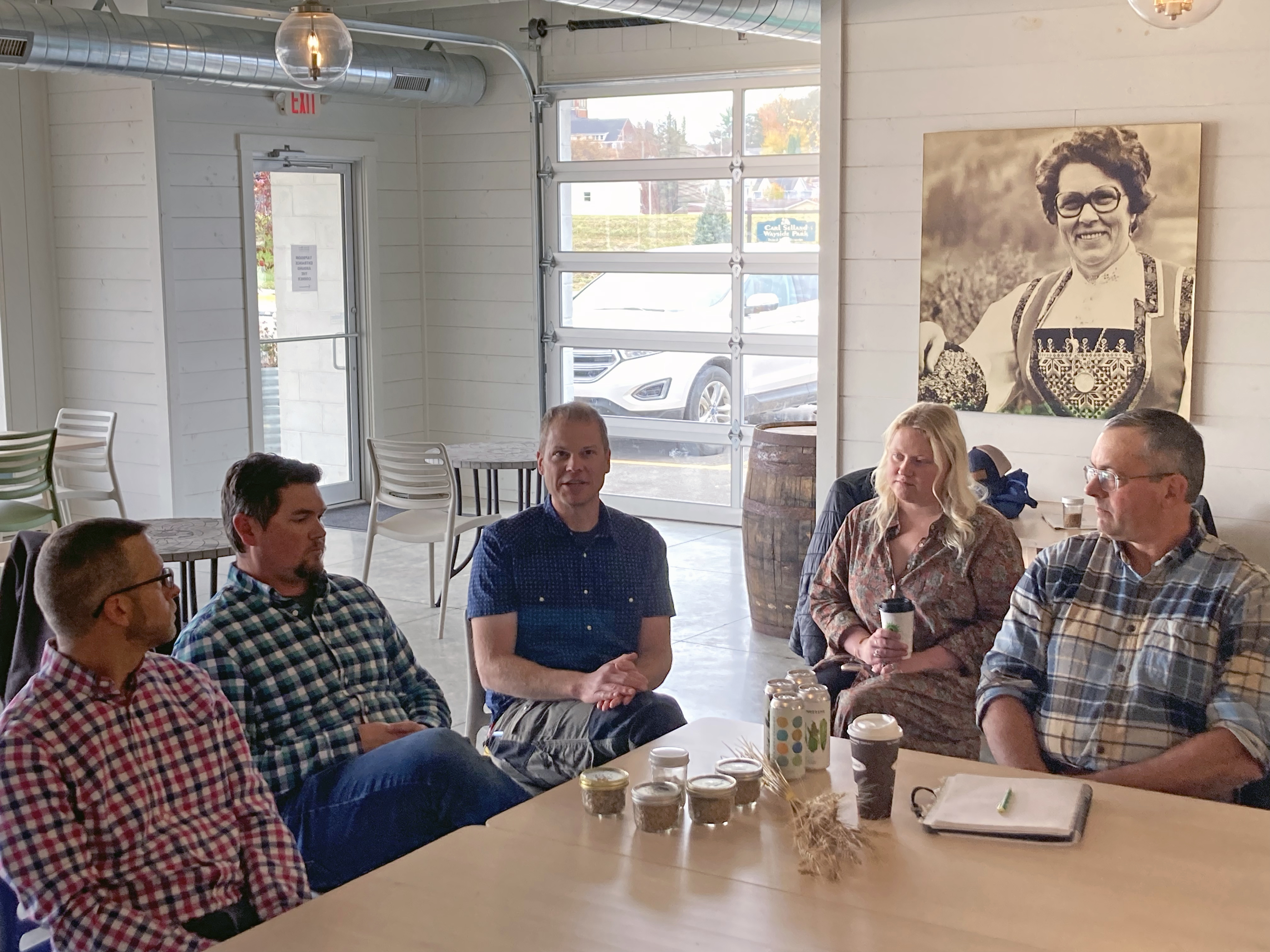Funders Network supports innovative farming practice

A new, innovative initiative for soil health and farmer prosperity called multi-cropping is seeing early success in Eastern Iowa thanks to investment last year by the Northeast Iowa Funders Network (NEIFN). Today, NEIFN is providing a second year of funding to help the program reach its full impact potential.
When multiple crops are planted together through this practice, often soybeans and a cereal grain like barley or rye, producers in the trials have seen first-year returns 2.5 to 4.5 times greater than monocrop soybeans. Input costs are reduced because weeds are suppressed by the cereal grain, and field traffic is minimized. Crop diversification also helps farmers stabilize profits in an unstable market.
However, unlike corn and soybeans, cereal grants have no direct path to market. There’s a need for local investment in the processing necessary to get cereal grains to market, such milling, malting or quality separation. That’s why NEIFN has again awarded a grant to Northeast Iowa Resource and Conservation Development’s (RC&D) Multi-Cropping Iowa initiative.
Multi-Cropping Iowa is working with over a dozen producers across Eastern Iowa to implement multi-crop trials and better understand the agronomic, economic and environmental impacts of multi-cropping. RC&D staff has created a collaborative of producers, entrepreneurs and industry professionals to focus on increasing cereal grain production, processing, and distribution in Eastern Iowa. The goals of these efforts are to:
- Create more opportunities for producers to incorporate cereal grains into their operations.
- Develop new or expanded businesses based around cereal grain processing, handling, or distribution
- Develop relationships and contacts with key individuals and organizations to expand locally sourced products
Fruitful Outcomes
Producers in Winneshiek, Allamakee, Clayton, and Fayette Counties have purchased grain-cleaning equipment, which is a critical step in processing cereal grain. “The work has inspired increased use of locally-produced cover crop seed, a market with great potential to be developed locally and regionally,” says Ross Evelsizer, natural resource projects director at RC&D. RC&D staff also met with local ag co-ops to discuss buying, storing, and processing cereal grains. They continue to work with state and national organizations interested in the effort, such as the Iowa Soybean Association, KWS Seeds Incorporated, Regen Mill, and the Nature Conservancy.
End users like Oneota Community Food Co-op, Pulpit Rock Brewing, Pivo Brewing, and Toppling Goliath have also been part of the discussion to incorporate more locally grown products into their productions. Pulpit Rock Brewing has already starting using local grains to brew its beer.
Soil health
“Year-round living roots in the soil through multi-cropping reduces the amount of nutrients leaving the state by improving soil health,” says Evelsizer. Healthy soil absorbs heavy rainfall and withstands drought conditions, both beneficial to the farmer. Because water is absorbed by the land, flood risk is reduced, surface runoff is minimized, and water quality is improved.
More plant species in the same area also promotes diversity in soil microbes and fungi activity, which crops need to grow strong and healthy. Early studies suggest that in as few as four years, multi-cropping practices could close the soil health gap between agricultural and native perennial lands.
Northeast Iowa Funders Network
NEIFN is made up of representatives from area community foundations seeking to fund innovative projects that support rural vitality, retain local wealth, and strengthen Northeast Iowa for the future. Foundations include the Allamakee County Community Foundation, Chickasaw County Community Foundation, Clayton County Foundation for the Future, Howard County Community Foundation and Winneshiek County Community Foundation.
M.J. Smith and Terry Gaumer represent the network on behalf of co-conveners Community Foundation of Greater Dubuque and Community Foundation of Northeast Iowa, respectively.
“The Funders Network was excited to learn about this project and support farmers in our part of the state and potentially across the world,” says Smith.